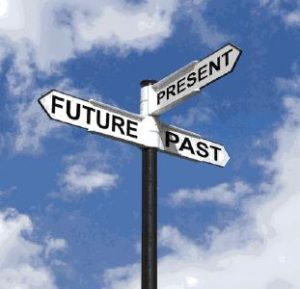AnxietyPath is a safe community environment supported by professional counselors. We are a free self help destination to receive support and guidance for recovery from anxiety and phobias
Worry When You Get There
 When we suffer from anxiety disorders, we will always think to a future situation involving our trigger(s) in an effort to try to control the future. What this does is cause us to worry unnecessarily and increases anticipatory anxiety.
When we suffer from anxiety disorders, we will always think to a future situation involving our trigger(s) in an effort to try to control the future. What this does is cause us to worry unnecessarily and increases anticipatory anxiety.
All anxiety is based in the future. When we think to the future involving our specific trigger(s), we will always attach a “what if” to it. “What if” something happens in that situation that I cannot handle? This is true for all people, with all types of anxiety disorders.
When I was working with my counselor, I would always bring up the “what if” scenario I feared the most; having a panic attack in my trigger situation. Mostly with my counselor I worked on my driving phobias, so I would always worry about having a panic attack while driving. And my counselor would always say to me, “worry about it when you get there”. In other words, thinking about it isnt going to help me, wait to you get there and see in real life what the situation is and handle it as it comes.
Certainly for me that was a very scary proposition. But there are a couple of very valuable lessons that we can learn from those words.
First lesson is that no matter what the actual future situation is, it will never be as bad as we think it will be. Believe it or not, this is absolutely true! Our imagination has the ability to create the absolute worst case scenario; far greater than reality will ever be. Even if in real life we experienced a panic attack, our imagination of a panic attack will always be worse than the actual real life panic attack we experience.
This goes to show just how powerful and creative our imagination really is. Anxiety itself uses our own imagination against us. Its really an unfair fight. Our imagination knows our deepest fears, and uses this information against us. It uses this information to force us to respond in some way to a perceived threat of danger.
Second lesson to learn from those words is that we are far more capable at handling real life situations than we give ourselves credit for.
When we are suffering from anxiety disorders we believe that we are helpless. Feeling helpless will often lead to becoming hopeless as well. This is also very common for all who experience anxiety disorders.
So when we actually get to the real life situation that we were worried about, we find that we are much better at handling the situatin than we ever imagined we would be able to.
When my cousnelor said “worry about it when you get there”, she knew that the situation would never be as bad as my imagination would make me believe. And she also knew that I was much more capable of handling any situation than I gave myself credit for.
This is why the foundation of recovery is empowerment. We have to feel empowered that regardless what the situation, we will be able to handle it. Anxiety wants us to be helpless and hopeless. It allows us to beleive our insecurities ไปที่เว็บไซต์. Once we feel empowered and capable, the anxiety will instantly lessen and loosen its hold on us. This will lead to us to recovery.
To practice this concept, when you feel yourself obsessing over a future situation involving your trigger, remind yourself that you will worry about it when you get there. Just get there and see what it is in real life.
This will be much easier to do the more familiar and comfortable you are with the use of tools. Both physical and mental tools. Practice them daily and have them on hand as you enter into your trigger situation.
Being proactive, prepared and entering into the situation feeling empowered will make a big difference in your levels of anxiety.
Never give up! Persistence!
Fear To Fearless
Categories
© 2020 AnxietyPath Powered by G SOUL INC